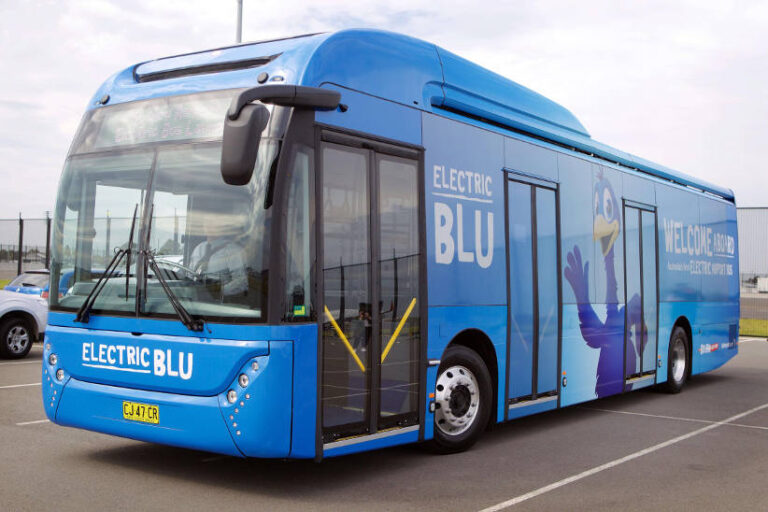– By Caroline Falls –
A new plan to provide a path for economic recovery in Australia amid the coronavirus bomb that has scuttled profits and jobs includes details on how transport will change and contribute.
The Million Jobs plan is an economic policy and plan to stimulate growth via a renewable energy boom, featuring electrification of public buses and recycling. It was unveiled late June via a webinar hosted by Eyton Lenko, chair of climate change research institute Beyond Zero Emissions. Lenko had strategic oversight on the project to develop the report.
The launch included Atlassian CEO Mike Cannon-Brookes (an evergreen climate champion) and Christiana Figueres, the architect of the Paris Agreement on climate change,
The Million Jobs Plan is “a unique opportunity to demonstrate the growth and employment potential of investing in a low-carbon economy,” Beyond Zero Emissions said introducing the report.
The plan projects 140,000 jobs will be created by introducing electric bus fleets and new green transport.
“The Million Jobs Plan transport initiative starts Australia on a journey to modern zero-emissions transport. It electrifies regional railways, introduces thousands of electric buses and expands cycling infrastructure. This would create 138,000 job-years including over 30,000 on-going manufacturing jobs and 8,000 short-term jobs at peak construction,” the report said.
The number of transport-related jobs is surpassed by the 940,000 projected in the plan from retrofitting buildings. Another 200,000 would come about from creating and transmitting renewable energy, and some 80,000 would be linked to recycling waste.
The plan details the rollout of 18,000 electric buses in the next five years to replace 30 percent of the existing bus fleet. The reports notes that this, together with changes in cycling and rail, would have the benefit of improving air quality.
The new employment potential of the transport initiatives would create 19,000 new manufacturing jobs with workers involved in the productions of bus bodies, chassis, battery chargers and a range of bus parts, the report said.
The bus strategy requires a massive scale up of bus production in Australia. Presently, some 1,150 buses are built in Australia, relying on imported chassis and drivetrains. The BZE plan forecasts the entry of some international bus producers, and the development of chassis building locally.
Already Dutch company Ebusco has announced plans to partner with the Australian Bus Corp to build a new factory making lightweight, carbon-fibre electric buses and Sweden-based Scania have also said they are interested in setting up facilities in Australia.
The introduction of as many as 20,000 new buses requires the rollout of some 15,000 charging stations, which Brisbane-based Tritium could deliver, said the report. Tritium is one of the world’s largest manufacturers and exporters of fast-charging stations.
— Caroline Falls is a freelance reporter, contributing to Australian and international publications. She can be contacted at carolinefalls@gmail.com






